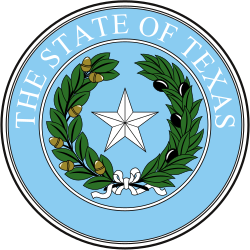November 8, 1960 | |||||||||||||||||
| |||||||||||||||||
Johnson: 50–60% 60–70% 70–80% 80–90% >90% Tower: 50–60% 60–70% | |||||||||||||||||
| |||||||||||||||||
| Elections in Texas |
|---|
 |
The 1960 United States Senate election in Texas was held on November 8, 1960. Incumbent Democratic U.S. Senator Lyndon Baines Johnson, who was simultaneously running for Vice President of the United States, was re-elected to a third term in office. Johnson had Texas law changed to allow him to run for both offices at once. [1] As of 2026, this is the last time the Democrats won the Class 2 Senate seat in Texas.
Contents
Johnson spent much of the year focused on his other campaigns. First, his unsuccessful campaign for the Democratic nomination for President ended in defeat at the hands of John F. Kennedy at the July Democratic National Convention. At the convention, Kennedy chose Johnson as his running mate.





